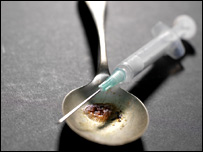Heroin Detox: (800) 315-2391 Heroin Rehabilitation: (888) 565-6401 Heroin Addiction Hotline: (800) 303-2482
Is Inpatient Heroin Rehab Right For You

Heroin addictions affect different people in different ways. The length of time a person engages in heroin use also has a bearing on the effects of addiction in his or her life. While heroin rehab offers a wide range of treatment options, not all types of treatment can address any one person's specific treatment needs.
Inpatient heroin rehab offers the most intensive level of addictions treatment. For this reason, the people most likely to benefit from inpatient heroin rehab will have a long history of drug addiction.
Heroin addictions have long-term effects on a person's thinking and behaviors even after a person stops using the drug. For some people, these effects make it all the more difficult to break an addiction habit. The intensive level of treatment care offered in inpatient heroin rehab offers long-time addicts the type of comprehensive care needed to maintain ongoing abstinence.
Five Signs Inpatient Heroin Rehab is Right for You.
Failed Attempts at Quitting - It's not uncommon for addicts to have attempted abstinence and failed one or more times in the past. These failed attempts reflect the considerable changes heroin has had on brain function. Once addiction takes root, brain functions become physically and psychologically dependent on the drug's influence. At this point, withholding heroin leaves the brain to make up for heroin's effects on its own.
Ongoing Heroin Withdrawal Effects - With each dose of heroin, the drug forces the brain's cells to secrete large amounts of neurotransmitters, according to the University of Maryland. Neurotransmitter chemicals regulate most every system and physical process in the body.
Over time, these high secretion rates gradually deplete the brain's supply of neurotransmitter chemicals. These conditions make it all but impossible for the brain to regulate bodily processes as normal. When this happens, a person's body remains in a constant state of withdrawal.
Prior Treatment History - The long-term after effects of heroin addiction have sent more than a few people in and out of the treatment process. Unless a person receives the type of treatment that best addresses his or her needs, the likelihood of relapse remains considerably high.
Inpatient heroin rehab addresses all aspects of the person in terms of:
- Medical Condition
- Psychological Condition
- Addiction Severity
By doing so, inpatient programs can identify and treat underlying problems that may not have been addressed during other treatment program periods.
Psychological Disorders - People with a long history of heroin abuse will likely develop psychological disorders due to chemical imbalances caused by the drug's effects. Over time, heroin's ability to alter neurotransmitter chemical processes throws the brain's cognitive and emotion-based functions off balance.
When this happens, psychological disorders, such as depression and anxiety take root. Inpatient heroin rehab programs treat any developing psychological disorders as part of the addictions' treatment process.
Lifestyle Pressures - Heroin addicts naturally fall into a lifestyle that supports and encourages ongoing drug use. The intensive treatment environment afforded by inpatient heroin rehab programs enables addicts to develop new lifestyle routines that support ongoing abstinence.
